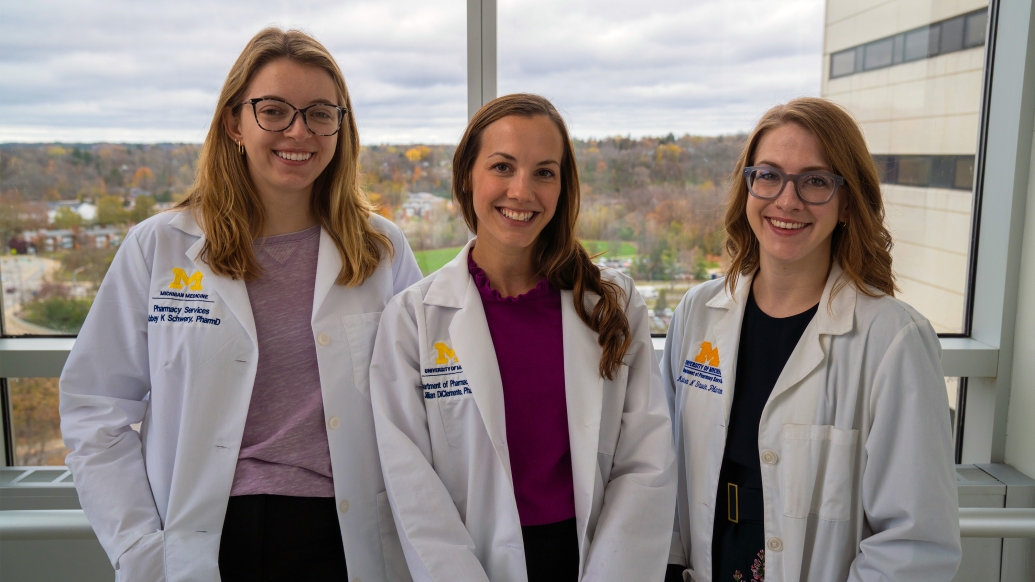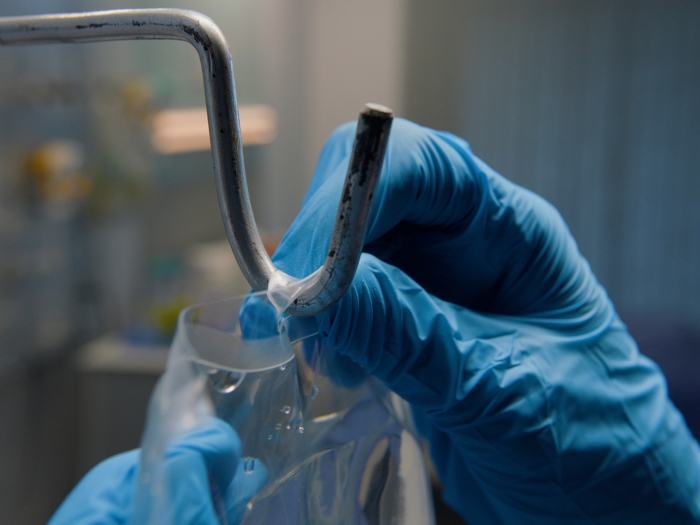The approach supports both patients and care teams, with a large focus on opioid prescriptions
12:37 PM
Author |

An innovative pharmacy consult service recently launched at Michigan Medicine, offering pain management support to patients and their inpatient care teams.
The Pain Pharmacy Service, designed for patients with chronic or complex pain, is staffed by two clinical pharmacists with post-graduate specialty training in pain management.
Working directly with the patient’s primary care team, the consultants recommend treatments to optimize the patient’s pain regimen and educate colleagues and patients on how to reduce the risk of opioid related harm.
While the team’s primary focus is on medication management, they also suggest non-pharmacological interventions and collaborate with other consult services to foster a broad approach to pain management.
“As a pharmacist, two of my most important jobs are to identify when medications may not be the best or the only answer and to provide education to patients about why that might be the case,” said Madison Irwin, one of the clinical pain pharmacists.
“It is really important to us to spend time educating patients so they feel empowered to use all the tools available to them in their pain management toolbox, especially when it comes to complex or chronic pain.”
The new service is a partnership between the Department of Pharmacy and the Rewrite the Script: Comprehensive Pain & Recovery Collaborative.
“This innovative service is a big victory for our patients and providers who often struggle with pharmacological management of complex pain,” said Paul Hilliard, M.D., associate professor of anesthesiology and lead for the Rewrite the Script: CPRC Team.
“I’m thrilled to see this service up and running and I’m proud to work at an institution that invests in pioneering strategies to better serve our patients in pain.”
An eye on patient safety
While the main focus of the Pain Pharmacy Service is inpatient consults, the team also devotes part of its efforts to improving patient safety by making sure patients are prescribed opioids safely and appropriately.
The team is focused on educating patients and care teams about the importance of prescribing naloxone (an overdose reversal drug) to patients with three or more IV push opioids in a 24-hour period and patients with new opioid prescriptions who are discharging from the hospital.
“PPS is providing a new, elevated level of pain management care for our patients,” said Jillian DiClemente, a clinical pain pharmacist, who is leading the development of the service.
“Our pain clinical pharmacist specialists have specialized residency training and are uniquely positioned to connect with patients to gather a thorough pain history which informs safe, optimized, and evidence-based pain management recommendations. This service is one example of how our institution is recognizing and addressing the gap in care for chronic and complex pain management patients to advance the quality of care we provide.”
“I’m so pleased that pharmacists are now positioned to better contribute to managing pain in complex patients,” added Chief Pharmacy Officer Stan Kent, R.Ph., M.S. “There are so many medication-related factors that need to be taken into account – and they aren’t always considered. There is no doubt in my mind that having pain management specialist pharmacists on the team will improve the care of our patients.”

Explore a variety of healthcare news & stories by visiting the Health Lab home page for more articles.

Department of Communication at Michigan Medicine
Want top health & research news weekly? Sign up for Health Lab’s newsletters today!





